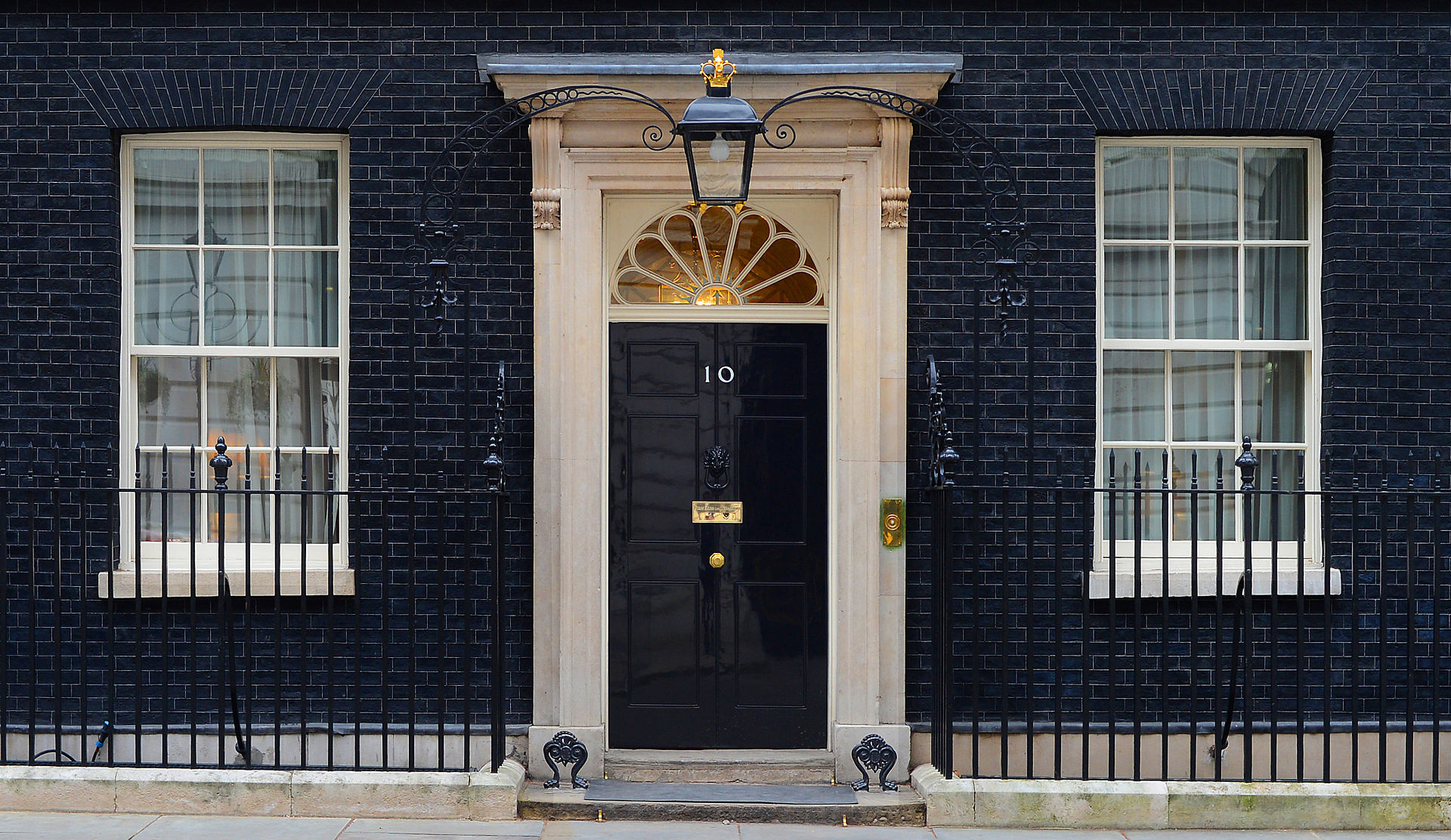Spending Review: Chancellor confirms £1.9bn cybersecurity funding
Tech apprentices, nurses and start-ups also set to benefit from Autumn Statement


Sign up today and you will receive a free copy of our Future Focus 2025 report - the leading guidance on AI, cybersecurity and other IT challenges as per 700+ senior executives
You are now subscribed
Your newsletter sign-up was successful
UK Chancellor George Osborne confirmed a 1.9 billion cybersecurity budget today, just one of a number of tech measures announced the Autumn Statement.
The government said that the security and intelligence agencies would see their budgets rise by 18 per cent in real terms while the Home Office is to spend 500 million by 2021 on the UK's core counter-terrorism capabilities.
"The investment decisions the government is making means the UK will continue to be protected with a cutting-edge military, strong domestic security, robust cyber defences and a truly global reach," said the Treasury in a statement.
The Treasury said that the National Cyber Security Programme would "build on the successes of the last Parliament and expand in scope and ambition".
Meanwhile, a new National Cyber Centre would be a "unified source of advice and support for the country and will continue its investment in the offensive cyber programme to ensure the UK has cutting edge capabilities in this new domain of warfare".
It added that the 1.9 billion allotted for cyber capabilities was an increase of 76 per cent on the last Parliament. One of two Cyber Innovation Centres will be based in Cheltenham, the other being based in London.
Another 130 million was earmarked for border technology, increasing the availability of intelligence and data for frontline services to "accurately target criminals, illegal migrants and illicit freight".
Sign up today and you will receive a free copy of our Future Focus 2025 report - the leading guidance on AI, cybersecurity and other IT challenges as per 700+ senior executives
Also confirmed was a 165 million Defence and Cyber Innovation Fund, in a bid to encourage new and innovative companies to push cyber capabilities, as well as a 20 million competition to open a new Institute for Coding to train the next generation in the high-level digital and computer science skills.
The National Crime Agency is also set to get new funding for digital and investigative capabilities to tackle cybercrime as well as child sexual exploitation and money laundering.
A new Apprenticeship levy is also set to come into effect in April 2017, at a rate of 0.5 per cent of an employer's pay bill.
A 15,000 allowance for employers will mean that the levy will only be paid on employers' pay bills over 3 million. The move is aimed at creating three million new apprenticeships by 2020. The government said that less than two per cent will pay the levy.
Another 1 billion will also be made available over the next five years for "better-connected services for patients" and to allow doctors and nurses to "have the information they need at their fingertips".
Paul Glass, partner at law firm Taylor Wessing said the increase in the budget towards the UK's cybersecurity spend will be most beneficial if put towards joint industry and government initiatives that help increase resilience and security, such as sharing cyber threat information as quickly as possible across sectors.
"To raise the bar on improving UK businesses' cyber security capability, businesses should work with the government," he said.
"They cannot, and should not, deal with this alone. The government needs to help people and businesses understand the current threat. Increasing awareness and understanding of preventative methods, coupled with this increased government spending on joint initiatives, will help develop a robust defence strategy that will increase the country's resilience to cyber threats in the long term."
But Richard Higgs, CEO of Scottish datacentre and cloud provider Brightsolid, said that today's announcement would be "disappointment to many colleagues within the technology community".
"We need dedicated resources to ensure that the UK is at the forefront of digital innovation, and infrastructure has to be the foundation," said Higgs. "And this isn't just my view, earlier in the month 100 MPs and Peers from various political parties signed an open letter urging the Chancellor to include investment in communications infrastructure and digital skills as part of the Spending Review."
He added that with the right investment, in the right places would transform the UK's digital economy and provide opportunities for every city in the country to become a tech-enabled.
"With better infrastructure across the country and increased digital learning, including mentoring for young enthusiasts, we'll see a big difference. Hopefully, the government can work towards making digital Britain a reality," he added.
CBI Director-General Carolyn Fairbairn aid that there was a "sting in the tail" in the size and scope of the Apprenticeship Levy.
"The Apprenticeship Levy, set at 0.5 per cent, is a significant extra payroll tax on business and by widening the net it will now catch more smaller firms," she said. "We welcome the creation of a levy board to give business a voice on how the money is spent and will work with the Government to ensure a focus on quality."
Other announcements included 1.8 billion ringfenced for a Digital Transformation Plan, to be announced in early 2016, and a 450 million budget for GDS.
Rene Millman is a freelance writer and broadcaster who covers cybersecurity, AI, IoT, and the cloud. He also works as a contributing analyst at GigaOm and has previously worked as an analyst for Gartner covering the infrastructure market. He has made numerous television appearances to give his views and expertise on technology trends and companies that affect and shape our lives. You can follow Rene Millman on Twitter.
-
 Researchers call on password managers to beef up defenses
Researchers call on password managers to beef up defensesNews Analysts at ETH Zurich called for cryptographic standard improvements after a host of password managers were found lacking
-
 Is there a future for XR devices in business?
Is there a future for XR devices in business?In-depth From training to operations, lighter hardware and AI promise real ROI for XR – but only if businesses learn from past failures
-
 UK government to fund regional tech programs up to £20m
UK government to fund regional tech programs up to £20mnews Local and regional partnerships invited to bid for support for established or developing projects
-
 Government’s ‘Humphrey’ AI tool helps local authorities cut costs
Government’s ‘Humphrey’ AI tool helps local authorities cut costsNews The Minute tool, part of the Humphrey AI assistant, is being trialled at 25 councils
-
 The UK government hopes AI will supercharge public sector digital transformation – IT leaders aren’t so sure
The UK government hopes AI will supercharge public sector digital transformation – IT leaders aren’t so sureNews Research from SolarWinds shows public sector transformation is progressing at a snail's pace despite IT leaders pushing for rapid improvements.
-
 Starmer bets big on AI to unlock public sector savings
Starmer bets big on AI to unlock public sector savingsNews AI adoption could be a major boon for the UK and save taxpayers billions, according to prime minister Keir Starmer.
-
 UK government targets ‘startup’ mindset in AI funding overhaul
UK government targets ‘startup’ mindset in AI funding overhaulNews Public sector AI funding will be overhauled in the UK in a bid to simplify processes and push more projects into development.
-
 UK government signs up Anthropic to improve public services
UK government signs up Anthropic to improve public servicesNews The UK government has signed a memorandum of understanding with Anthropic to explore how the company's Claude AI assistant could be used to improve access to public services.
-
 US government urged to overhaul outdated technology
US government urged to overhaul outdated technologyNews A review from the US Government Accountability Office (GAO) has found legacy technology and outdated IT systems are negatively impacting efficiency.
-
 Government urged to improve tech procurement practices
Government urged to improve tech procurement practicesNews The National Audit Office highlighted wasted money and a lack of progress on major digital transformation programmes
